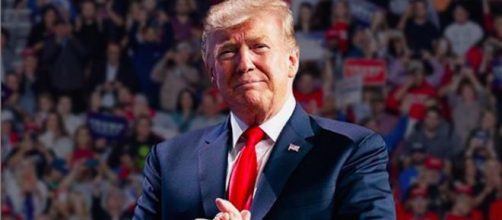Instability returns to the Middle East after the removal of Maj. Gen. Qassem Soleimani. He was the commander of Iran’s elite Quds Force. US President Donald Trump had ordered the airstrike that killed the military figure in order to prevent him from directing attacks on Americans. Teheran vowed to take revenge for what they see as an assassination and, Trump ordered the deployment of additional troops to the region to reinforce existing ones.
The POTUS also indicated that if Iran continues to threaten the United States, there would be retaliation.
It could be in the form of strikes on 52 locations that have cultural significance. The number 52 is significant. It represents the 52 Americans who Iran had taken as hostages many years ago. It happened in 1979 during Iran’s Islamic Revolution. A group of armed Iranian students took 52 hostages from the US Embassy in Teheran. They remained in captivity for 444 days until they were released in 1981.
Huffington Post says the destruction of sites that have a cultural heritage falls in the category of war crimes as per the United Nations Security Council. It is criminal for any military to intentionally target or destroy such sites. The list includes museums and religious and archaeological sites.
In a series of tweets, Pres. Trump said there was a list of 52 sites the US would target if Iran retaliated for the killing of Gen. Qassem Soleimani, including sites "important to Iran & the Iranian culture."https://t.co/iayTZjKmK8
— MSNBC (@MSNBC) January 5, 2020
Teheran vows to take revenge
Many Iranians revered Maj. Gen. Qassem Soleimani and his sudden death has shaken the leadership. Ayatollah Ali Khamenei is the supreme leader and the Supreme National Security Council has vowed to take “forceful revenge” for the death. The council indicated that it had decided on the mode of response to American aggression but haven't disclosed details. It seems the country wants to keep up the suspense. Donald Trump justified the killing of Soleimani by saying it was to prevent him from directing attacks on Americans.
In the opinion of experts, an action of this nature could have an adverse effect on the presence of the US military in the region.
Trump warns Iran that if it retaliates against Americans or American assets, the US has 52 Iranian sites targeted for attack https://t.co/mxKGvy5Hn1 pic.twitter.com/fF56AFXmIP
— CNN Breaking News (@cnnbrk) January 4, 2020
Huffington Post adds Iran has links with militia groups in countries like Iraq and Syria and many of them were empowered by Soleimani’s leadership. They could also pose problems and in the world of today, attacks can come from the most unexpected quarters. Obviously, the US security mechanism is aware of the challenges involved. The president has already ordered the deployment of additional troops to the region to reinforce the present strength.
The USA wants no more threats
According to Fox News, President Donald Trump took to Twitter to warn Iran to forget retaliation against the U.S.-ordered airstrike that eliminated Qassem Soleimani in an airstrike in Baghdad. The president described the slain leader as a “terrorist leader who had just killed an American, & badly wounded many others.” Trump added that Soleimani attacked the US Embassy and was targeting other locations. Iran’s Supreme Leader Ayatollah Ali Khamenei mentioned about "harsh retaliation” while the country’s President Hassan Rouhani promised to "take revenge for this heinous crime."
Iran is talking very boldly about targeting certain USA assets as revenge for our ridding the world of their terrorist leader who had just killed an American, & badly wounded many others, not to mention all of the people he had killed over his lifetime, including recently....
— Donald J. Trump (@realDonaldTrump) January 4, 2020


